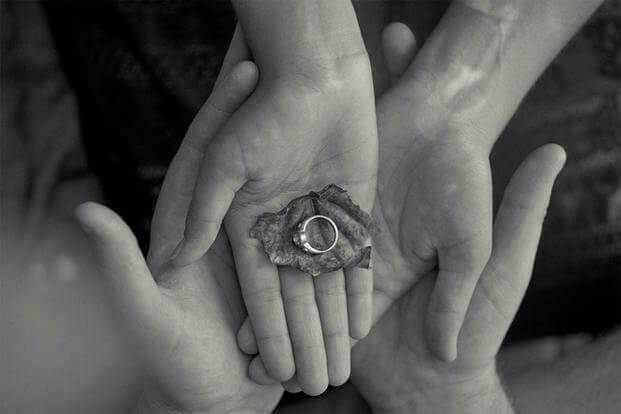The gap between my husband and me felt as wide as the Grand Canyon. Desperate to give it clarity, we called each life-changing moment that had over time created it a "sacred space."
Let's be real. After my husband's first deployment, we did not reintegrate well. Even though we communicated as best we could while apart and were proactive in preparing for his return, things were just not syncing between the two of us.
He had experienced major life-changing moments while he was in theater -- battle, injuries, death -- cementing a sacred bond with his Army brothers that I would never understand.
And no matter how hard he tried to describe those moments that forever changed his perspective on life and service, I just couldn't embrace it. I wasn't there. I could never really know.
Similarly, I had been stretched during that deployment beyond what I thought I could survive. No matter how much I tried to detail overcoming loneliness, despair, potty-training a tyrant or figuring my way after a car wreck, he simply didn't share the memory with me.
These experiences weren't something we could just walk away from, ignore or rewind. They were multi-sensory and sacred, meaning that they were set apart from the normal everyday moments in life.
They changed the trajectory of our outlook on life, view of self and even God. They took up a significant "space" in our story, or in this case, individual stories. Some of them were traumatic and alienating, some of them were beautiful moments of community or spirituality.
You Have a Sacred Space
You have experienced these kinds of events during those long separations war has brought us. You know what I'm talking about.
After one particularly nasty argument, my husband and I agreed that the root issue was that each of us deeply wanted to feel understood by the other. We wanted to be seen. We could never go back and be a part of those things that shaped us and pushed us apart, so something had to change.
Our new goal was to listen to each other, even when we couldn't fully understand. By starting off with "this is a sacred space for me," we accepted that the other didn't have to fully "get it," but at least they could respect it, hear it and tread lightly on the monumental thing. It was a revolutionary decision in our military marriage.
I have introduced the "sacred spaces" terminology to many people since writing my book of the same title, and what I have found is that it universally describes moments in the human experience. Regardless of a person's career path, we all desire to be understood. We all want someone to hear us, see us and know us.
A mother recently told me she finally realized that losing her child was a sacred space. She had been expecting everyone around her to grieve as she grieved. This new perspective allowed her to let go of that anger and find an inner circle of support that can better empathize.
A military spouse discovered that her resentment toward the marriage was not at her husband, but really toward her husband's traumatic brain injury. It was an additional barrier to their attempts at communicating. She let go of her resentment as she wept tears of a new commitment to create more shared sacred spaces rather than focus on the separate ones.
It's such a simple concept. It's an acknowledgment that while we cannot go back in time, we can choose how we treat the past and what it has done to shape us and others. It's not about tiptoeing around the hard stuff. It's about seeing it for what it is -- a sacred space -- and knowing the real question is: Can I trust you to hold that sacred space?
Keep Up with the Ins and Outs of Military Life
For the latest military news and tips on military family benefits and more, subscribe to Military.com and have the information you need delivered directly to your inbox.





















